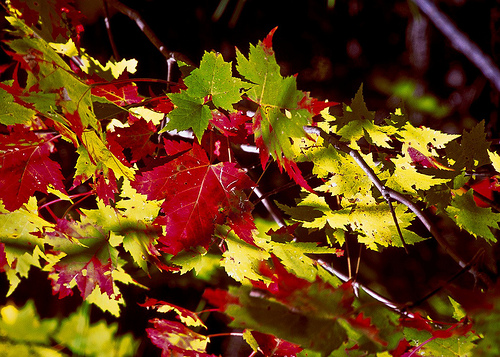
Maple leaves of many colors offer an unending palette of color in the United States Department of Agriculture, U. S. Forest Service, Hiawatha National Forest on the Upper Peninsula of Michigan.
U.S. Forest Service research indicates that climate change will affect habitat suitability for maple trees, threatening the multimillion dollar maple syrup industry. Changes in climate have already had an impact on the iconic sugar maple trees of the Northeastern U.S.
Flow of maple sap, which is boiled down to make syrup, is controlled by alternating freezing and thawing cycles in the late winter. Maple trees also rely on snowpack during this time to protect their roots from freezing. Read more »
A report being released by the U.S. Forest Service examines the impact of climate change on eight forest diseases and how these pathogens will ultimately affect Western forests.
The report analyzed a range of future conditions from warmer and dryer to warmer and wetter. The first scenario, which is considered more likely for most regions in the West, includes dryer and hotter summers. These conditions will increase the risk of wildfires and warmer winters allowing insect outbreaks, like the bark beetle, which has destroyed millions of pine trees in Colorado, to continue. Read more »
Every year across the country, the U.S. Forest Service plants trees on thousands of acres of land. These efforts help to restore valuable ecosystems and helping to combat the effects of climate change.
“Planting trees is a win-win investment,” said Dave Cleaves, Climate Change Advisor for the Forest Service. “Not only do trees store carbon, making them one of our most effective tools for climate change mitigation, they provide many other benefits – from watershed protection, to wildlife habitat, to shading houses and reducing cooling costs.” Read more »

